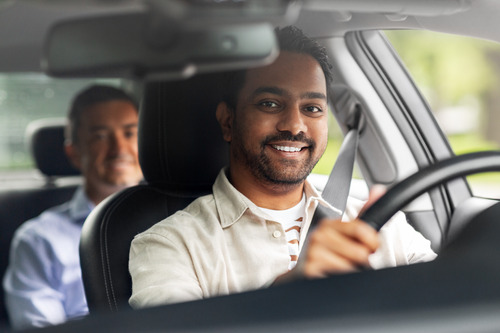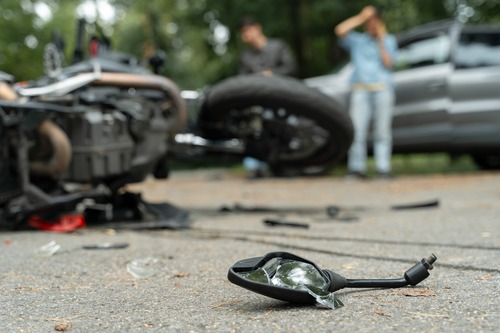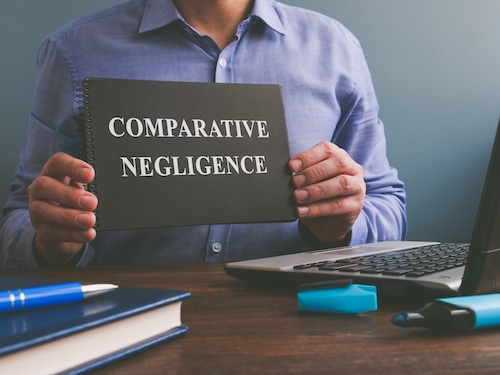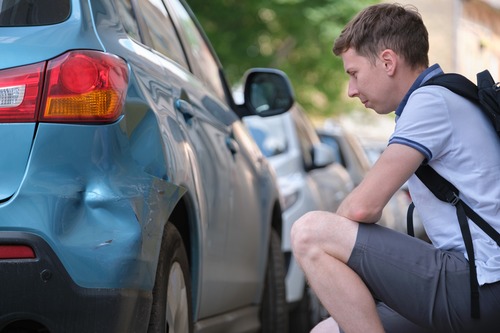Rideshare services like Uber and Lyft have transformed modern transportation, offering unparalleled convenience but also introducing new legal challenges when accidents occur. As the popularity of these platforms grows, so does the complexity of resolving liability and compensation issues in cases involving injuries or property damage. Recent legal precedents have begun to shape how courts handle these disputes, addressing questions around corporate responsibility, driver negligence, and the application of insurance policies.
In this blog, we discuss rideshare accident liability, recent legal precedents, and settlement factors, highlighting the importance of working with an experienced rideshare accident lawyer in Atlanta to secure fair compensation.
Definition and Liability of Rideshare Companies
Rideshare companies, like Uber and Lyft, are classified as motor carriers under the Georgia Motor Carrier Act. This classification means that they have specific legal responsibilities when it comes to transporting passengers. As motor carriers, rideshare companies must maintain adequate insurance coverage to protect passengers and other road users in case of accidents. Additionally, agreeing to the terms of service constitutes a binding contract that includes specific legal responsibilities for both the company and the user.
Implications for Suing Rideshare Companies’ Insurance Coverage Directly
This classification allows injured parties to sue the rideshare company’s insurance directly. If a rideshare driver causes an accident while transporting a passenger, the injured party can file a claim against the rideshare company’s insurance policy. This can lead to higher compensation amounts, as these companies typically carry substantial insurance limits. However, companies might file motions to compel arbitration to avoid direct lawsuits.
Direct-Action Lawsuits
Direct-action lawsuits allow injured parties to sue the insurance company of a rideshare driver directly. This legal approach can simplify the claims process for victims. However, arbitration agreements can complicate the process of filing direct-action lawsuits, as individuals may unknowingly consent to arbitration with companies, raising questions about enforceability and clarity. Instead of dealing with the rideshare company, plaintiffs can pursue compensation from the driver’s insurance provider.
Legal Basis for Directly Suing the Insurance Company
In Georgia, the law permits individuals injured in rideshare accidents to file claims against the driver’s insurance. This is significant because it bypasses the rideshare company’s involvement. The injured party can hold the insurance company accountable for the damages caused by the driver’s negligence. This legal framework strengthens the position of victims seeking compensation.
Impact on Injured Parties’ Rights and Compensation
Direct-action lawsuits can enhance the rights of injured parties. By allowing them to sue the insurance company directly, victims may experience a more streamlined process for obtaining compensation. This can lead to quicker settlements and less frustration. Furthermore, it can provide a clearer path to recover damages for medical bills, lost wages, and pain and suffering.
Recent Legal Precedents and Their Impact
Recent legal cases have highlighted the evolving nature of liability and accountability in rideshare accidents, shaping the way these claims are handled and setting significant precedents for future litigation. For instance, a New Jersey appeals court ruled that a couple could not sue Uber for injuries sustained in a car accident due to the arbitration clause in the app’s terms of service, which had been unknowingly accepted by their daughter while ordering food.
Landmark Cases Shaping Rideshare Liability Claims
Several high-profile lawsuits have established critical guidelines for addressing liability in rideshare accidents. For instance, in a notable case where plaintiffs sued Uber, the court ruled that Uber had sufficient operational control over its drivers, leading to broader insurance coverage and direct liability for the company. These decisions underscore the importance of evidence, such as app activity and driver communication, in proving liability.
Emerging Trends in Legal Decisions
Recent trends in legal decisions are increasingly influenced by arbitration agreements, especially in the context of rideshare services. The courts are starting to recognize the unique issues with rideshare services, such as distracted driving from app use and fatigue from long hours.
Recent cases have also expanded the scope of liability to non-driver related issues like poor vehicle maintenance or hazardous road conditions. Cases with multiple injured parties have shown how complex it is to apportion liability between the driver, the company, and other entities involved. These trends are pointing to a more detailed understanding of the risks involved in rideshare operations.
Challenges for Victims
Rideshare accident victims face many challenges in getting compensation due to the complexity of liability, insurance, and binding arbitration clauses in these cases.
Complexity of Multi-Party Litigation
Rideshare accidents involve multiple parties – the rideshare driver, passengers, other drivers, pedestrians, and even the rideshare company. This multi-layered situation makes it difficult to determine and prove liability. Each party points fingers at others, causing delays and making it harder to get a fair settlement. Victims have to navigate this web of conflicting stories, often requiring expert legal help to untangle the liability and pursue the right claims.
Proving Negligence and Liability in Claims
To successfully recover compensation, victims must establish negligence, which involves proving four elements: duty of care, breach of duty, causation, and damages. In rideshare cases, this task is further complicated by the need to determine the driver’s status within the app at the time of the accident and whether the rideshare company’s insurance applies. Gathering evidence, such as app activity logs, police reports, and witness statements, is critical but often challenging.
Settlement Amounts and Compensation Factors
Recent trends in Georgia rideshare accident cases show a notable increase in settlement amounts, often influenced by the presence of a binding contract. Victims of rideshare accidents are often entitled to compensation for various damages, including medical expenses, lost wages, and pain and suffering.
Recent Settlement Trends in Georgia Rideshare Accident Cases
In Georgia, settlements for rideshare accidents have been rising due to a combination of factors. Many cases now result in settlements reaching six figures or more. This growth reflects the increasing recognition of the serious impact these accidents can have on victims’ lives. The rise in settlements also correlates with heightened awareness of rights among injured parties and improved representation by legal professionals.
Factors Influencing Settlement Amounts
Several key factors influence the settlement amounts in rideshare accident cases:
- Severity of Injuries: The extent of injuries plays a critical role in determining compensation. Severe injuries, such as traumatic brain injuries or fractures, typically lead to higher settlements due to the long-term medical care and rehabilitation required.
- Fault in the Accident: The degree of fault assigned to each party affects settlement outcomes. In Georgia, the modified comparative fault rule allows victims to recover damages as long as they are less than 50% at fault. If a victim is found to be partially at fault, their settlement may be reduced accordingly.
- Medical Expenses: Documentation of medical expenses is vital. This includes hospital bills, rehabilitation costs, and ongoing treatment. Clear records can significantly strengthen a victim’s claim for compensation.
- Lost Wages: If the accident causes a victim to miss work, lost wages can be included in the settlement. Calculating this amount accurately is essential for fair compensation.
- Pain and Suffering: Emotional distress and pain caused by the accident can also be compensated. This aspect is often subjective and requires careful presentation to establish its impact on the victim’s life.
- Insurance Limits: The insurance policies of the rideshare driver and the company can limit the maximum amount available for settlement. Understanding these limits is crucial for victims when pursuing compensation.
Seek Guidance From an Experienced Atlanta Rideshare Accident Attorney ASAP!
If you’ve been injured in a rideshare accident, navigating the legal complexities can feel overwhelming. Let our experienced team at Atlanta Metro Law provide the support and expertise you need to pursue your claim effectively. From understanding your rights to negotiating with insurance companies, we are committed to securing the maximum compensation you deserve.
Contact us at 864-894-2045 for a free case consultation!





